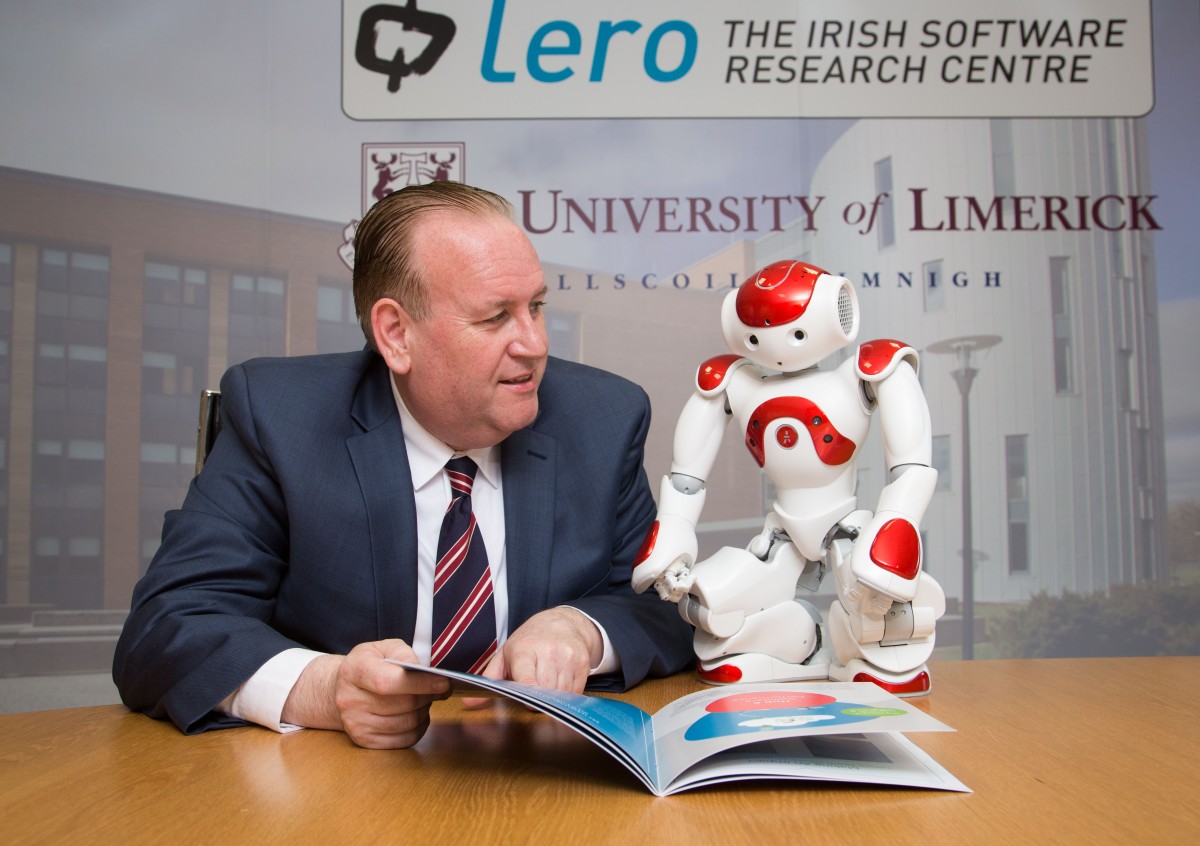
While robots will take over many traditional occupations, technology will also deliver new and different job opportunities.
This was stated by Professor Mike Hinchey, director of Lero, the Irish Software Research Centre based in the University of Limerick, in advance of the presentation of the organisation’s 2015 internal annual report to SFI (Science Foundation Ireland).
Some experts have warned that the rise of robots could lead to unemployment rates of more than 50% over the next 30 years. “Major advances, for example, in driverless cars mean that today’s kids are unlikely to find work as taxi drivers but other types of jobs will be created,” said Professor Hinchey.
“Back in 1979 computer scientist and psychologist Dr Christopher Evans forecast that by 2000 as a result of the computer revolution we would be working a 20 hour week and retiring at 50 as machines replaced work. While he was uncannily correct in many of his predictions, including driverless cars and smart watches, the anticipated impact on jobs and leisure did not happen.”
However, Professor Hinchey warned that not everyone is cut out to be a computer scientist. “A big challenge is to replace traditional manufacturing and manual labour jobs and we must look to educate people differently in order to prepare today’s schoolchildren for the new world of work. For example, modern technology means that it is less expensive than ever to establish your own business and the curriculum should include courses in entrepreneurship.”
He also said that a real threat from robots is a global arms race in the development of autonomous weapons that use Artificial Intelligence (AI).
Professor Hinchey, who is President-Elect of the global IFIP (the International Federation for Information Processing) reiterated the view of the organisation, backed by more than 3,000 scientists, researchers and prominent figures in industry and academia, that “there should be a worldwide ban on offensive autonomous weapons that are beyond meaningful human control”.
An expanded Lero, the Science Foundation Ireland backed Irish Software Research Centre, headquartered at UL, was formally launched in November last in a €46.4 million investment over six years.
€32.6m of the investment is being funded by Science Foundation Ireland (SFI) with support from EU Structural Funds. Industry is backing the initiative with total contributions worth €13.8m.
The Lero report states that it was granted four patent applications in 2015 to add to its existing portfolio of 25 patents. Since its foundation, it has produced 68 PhD graduates and currently has another 66 on its books.